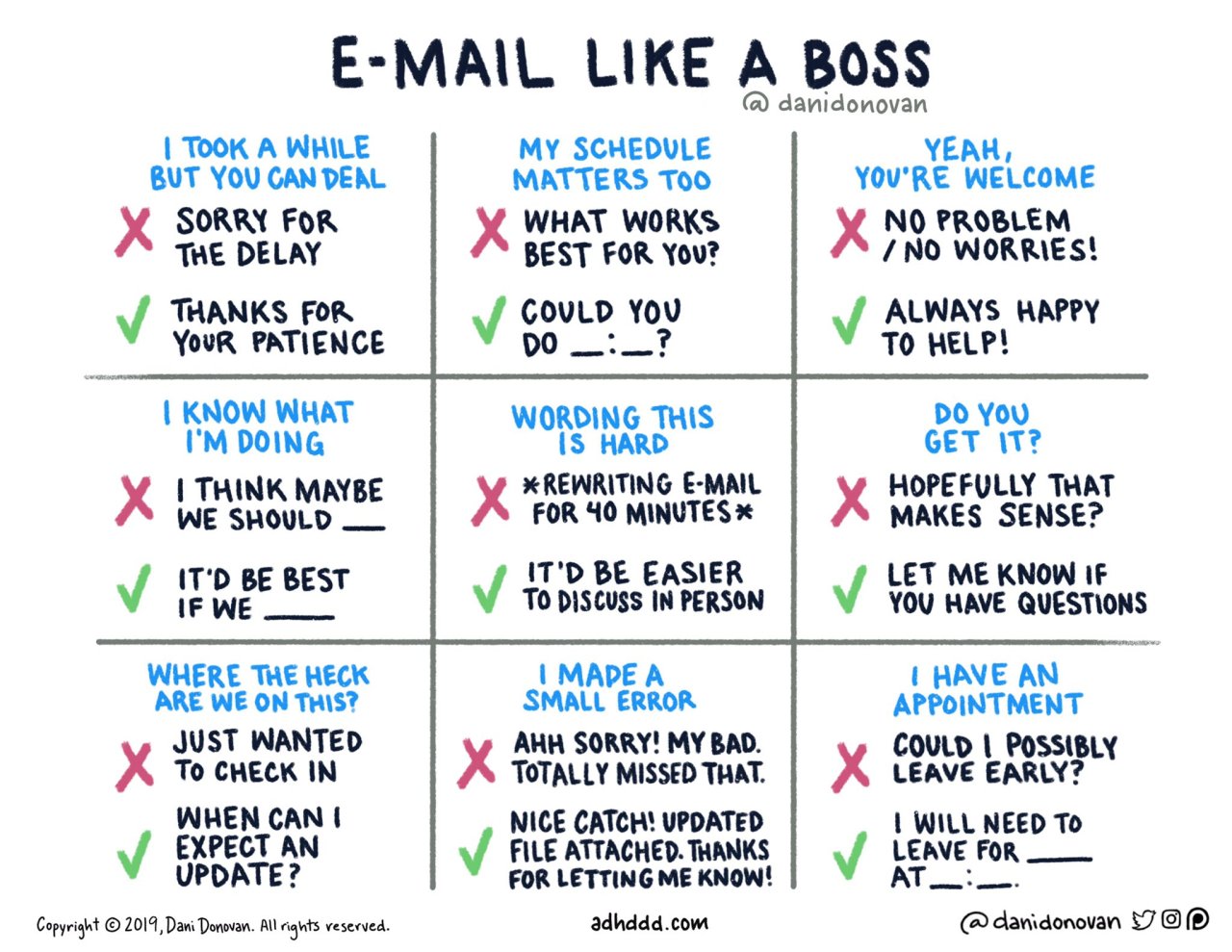commanderfraya: these are excellent! i’ve used some in the past and will definitely be i
commanderfraya: these are excellent! i’ve used some in the past and will definitely be incorporating the others in my emails to clients in the future.a quick general-commentary note:you’ll notice these are all ways to establish confidence, keep interactions positive, and facilitate communication. i won’t do a deep analysis of each one, but examples:“thanks for your patience” is a phrase i FIRMLY believe has saved more than one client relationship for me. if i’m unable to get to a writing assignment as fast as usual (business, too much sleep, mental health issues, whatever) i ALWAYS lead with this. it beats “sorry for the delay” because it acknowledges and appreciates your client, doesn’t open the door for demanding questions, and reassures them that they’re a priority for you“nice catch! thank you for letting me know!” keeps the interaction positive, keeps them from feeling uncomfortable responsibility for your apology, and encourages them to keep communicating potential issues in a constructive way“let me know if you have any questions” opens the floor for them to, indeed, ask whatever questions they have. something like “i hope that makes sense” makes the recipient feel like understanding said email is all on them, so they’re less likely to ask questions“i will need to leave for x at x time” is a lifesaver when asking for time off, esp for retail employees who are expected to be available at all times (i have also worked full time retail, i know the struggle haha) – you do NOT want to give your employer/professor/whoever an opportunity to say no. you’re not asking them for permission, you’re informing them that they will need to make accommodations for your absencethat did get a little long, but the main thing i want to say is: these general rules should ideally apply to all your social relationships, not just professional onesthe most effective communications involve the following:your needs and boundaries are stated clearly, and do not rely on permission from the other personyou frame each interaction in a positive light – if you’ve caused a problem, you fix it and move on; if there’s a more general problem, you collaborate with the other person to find a solutionyou don’t apologize if the other person will not benefit from an apology (but, of course, you do apologize and correct hurtful mistakes if harm has been done and an apology is necessary to acknowledge ur mistake and move forward)if you’re having trouble with wording, sorting your thoughts, or having a positive attitude toward the interaction, you communicate that and seek a potential avenue that’s easierall of these things will make your interactions with people more productive and help you facilitate the kinds of relationships and mutual goodwill you want to have o/ -- source link
Tumblr Blog : wilwheaton.tumblr.com
